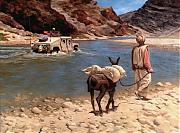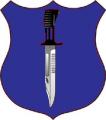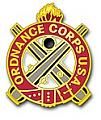Ö Traditionally, the military has relied almost solely on so-called hard sciences like nuclear physics and electronics. But as a simple regime-change operation in Iraq descended into a baffling counterinsurgency, it became clear that you can have the most advanced sensors, the toughest armor, the most precise GPS-guided munitions, but without any insight into the civilian population - or at least some sense of how they'll react to your moves - your war effort is sunk.
By 2004, McFate had made her way into the national security establishment as a researcher at Rand. (This despite an unusual background ó she grew up on a barge in the San Francisco Bay and had hung out with well-known beat poets.) McFate's ideas (shared by a growing number in the military) caught the attention of the science adviser to the joint chiefs of staff. She then codified them in a pair of landmark articles in Military Review outlining a rationale and strategy for integrating the social sciences into national defense. Today she is the senior social science adviser for the Human Terrain System, a $130 million Army program that embeds political science, anthropology, and economics specialists with combat units in Afghanistan and Iraq. "What you're trying to do is understand the people's interests," she says. "Because whoever is more effective at meeting the interests of the population will be able to influence it."Ö















Bookmarks